20. Little Red Riding Hood
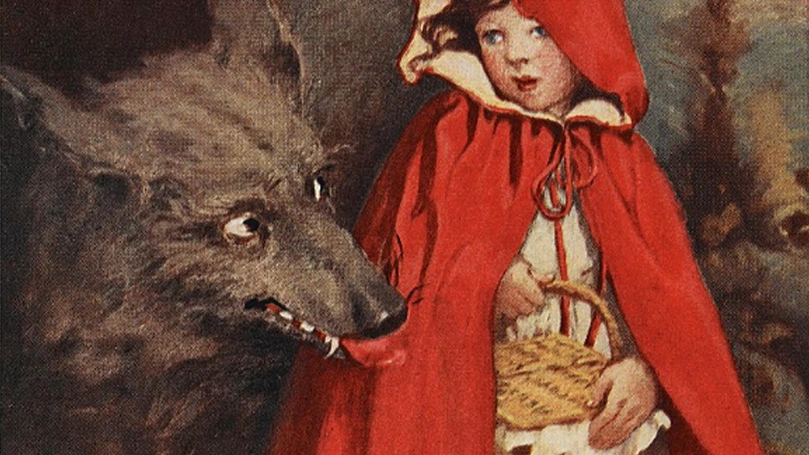
When it comes to classic fairy tales, Little Red Riding Hood is undoubtedly in the fairy tale hall of fame. With the story being reimagined countless times throughout the years (with stories, TV shows, and even games), it would be a shame for any child not to be somewhat aware of this gem.
It teaches children not to blindly trust strangers as you never know whether they could be a wolf. Plus, the iconic confrontation between Little Red Riding Hood and the wolf allows you to play up the story quite a bit – with different voices or maybe even a mask, which is sure to make it quite a memorable tale.
19. The Princess in the Chest
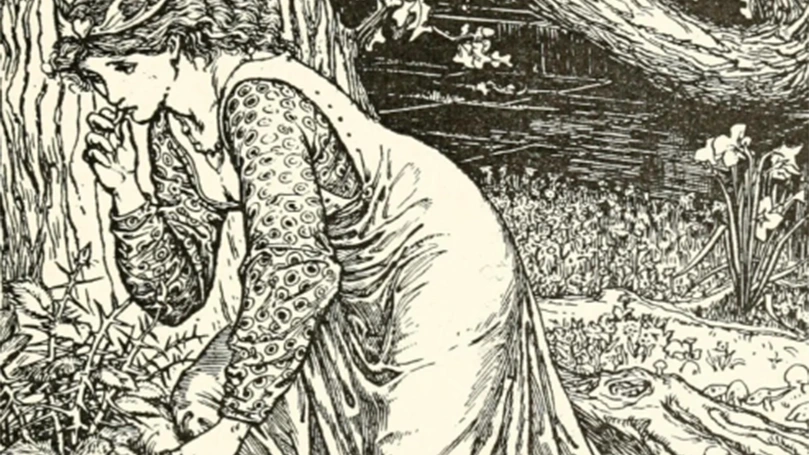
This obscure yet wonderful story comes to us from Andrew Lang and “The Pink Fairy Book”. And let's just say that it isn't as wholesome as some other bedtime stories. However, that's also what makes it so fascinating.
To explain the plot without spoiling too much, it focuses on a princess who must stay in a chest for a year while every guard watching over her disappears during the night. And our Prince Charming is a very lucky drunk.
The story can be a bit scary and the message might not be all that clear but it's still quite a fascinating read. In fact, most of the stories from “The Pink Fairy Book” fall under this description.
18. Hansel and Gretel
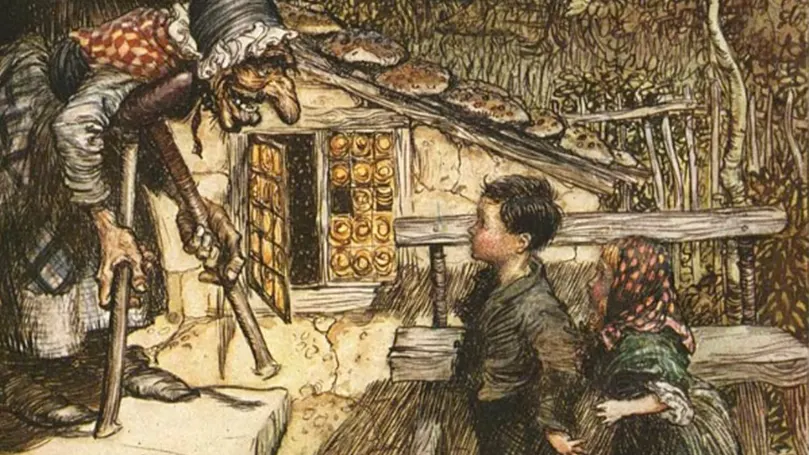
Although the story of Hansel and Gretel depicts parents in quite an unflattering manner, it's still a classic among fairy tale lovers! This is mostly due to the sense of adventure between the siblings. So, if you have a pair of your own, the story might be right up their alley.
Not to mention that it gives you a good reason to ban sweets from time to time. After all, nobody wants to meet the wicked witch and even the most beautiful fairy tales don't talk about tooth cavities.
17. Uprooted
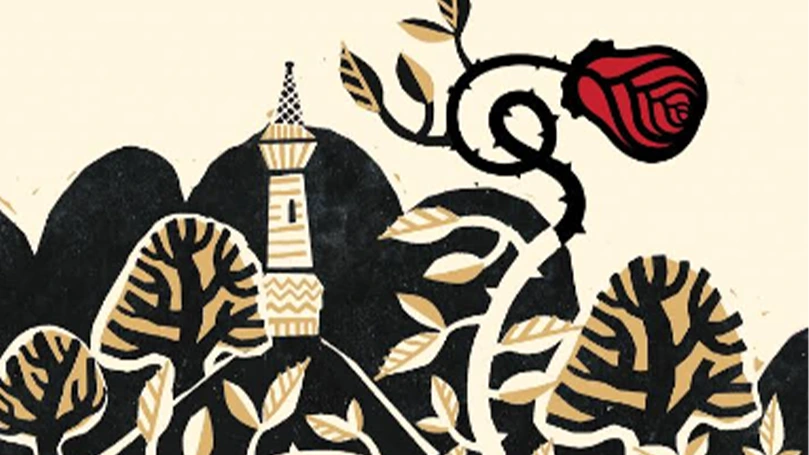
This modern fairy tale comes to us from Naomi Novik and makes for quite an interesting read. The story at its core is rather simple – a mysterious wizard protects the village but he is soon accompanied by the heroine (who didn't exactly come there of her own free will).
Just like the older household tales, the story has a mysterious and sometimes sinister atmosphere that can make your creativity run rampant. Plus, there's even a slight Beauty and the Beast dynamic thrown in there for good measure.
16. Snow White and the Seven Dwarfs
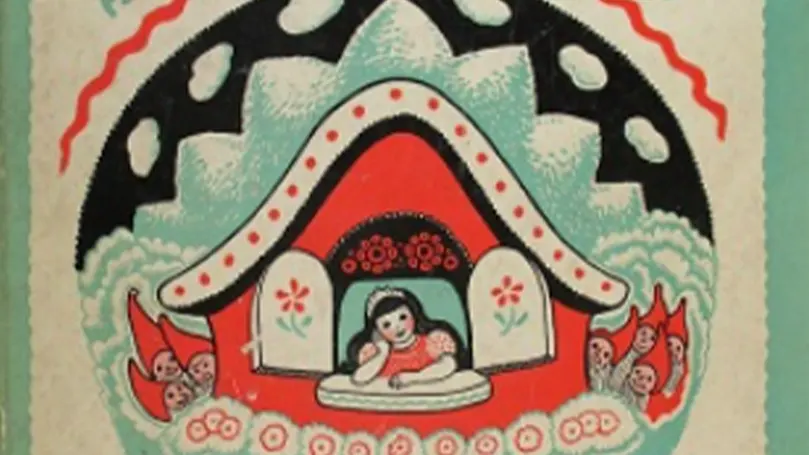
Could your kids avoid eating apples for a while after reading this story? Possibly. But will they now know not to take food from strangers? We'd hope so.
Plus, the story itself brilliantly shows the downfall of vanity, as the evil queen never manages to stack up to the kind Snow White. And this might just be our bias, but the dwarfs are one of the most iconic and wholesome side characters in all fairy tales.
15. The Seven Ravens
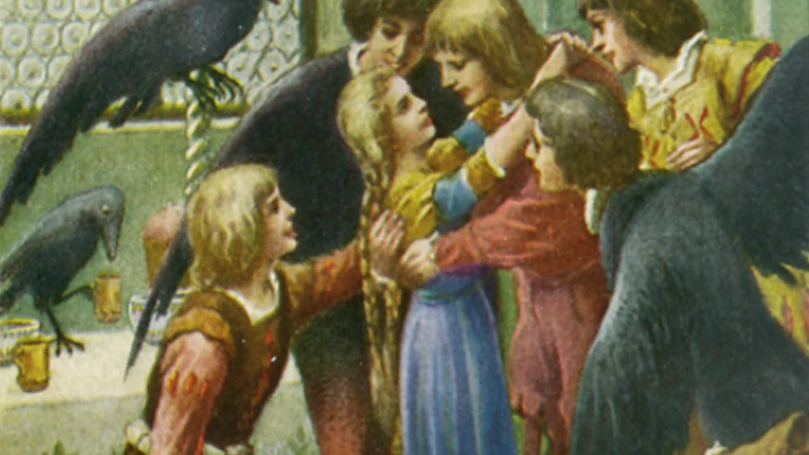
Since we had the iconic seven dwarfs, it only makes sense to now talk about the seven ravens. This fairy tale was also written by the Brothers Grimm, however, it's not nearly as popular as some of their other work. However, it has that same sense of wonder that made their fairy tales so famous in the first place.
Our fictional hero is a young girl who sets out on an adventure to save her seven brothers who were turned into ravens upon her birth. Said adventure has her visit the Sun, the Moon, the Stars, and lastly the Glass Mountain.
For the most part, the story is rather wholesome and an amazing spectacle for your imagination. There is one point where it's a bit dark but it's nothing too serious. And also, we have to point out that this is one of the very few fairy tales where the protagonist actually has common sense, which is a nice change of pace.
14. Cinderella
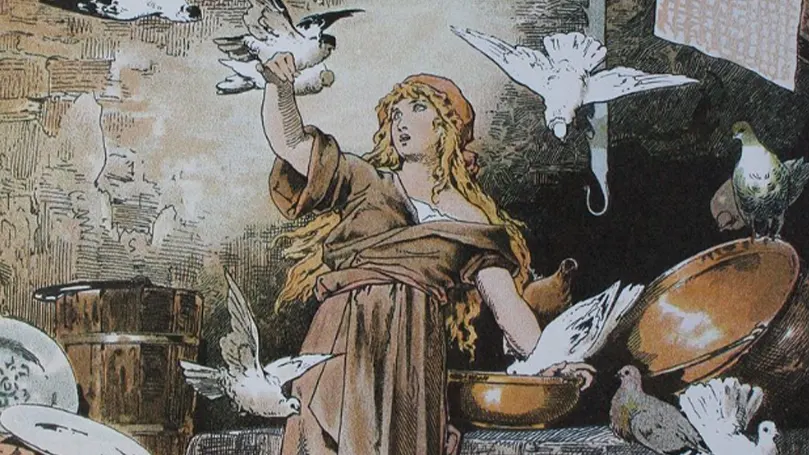
When it comes to the depiction of the wicked stepmother, few stories were as influential as Cinderella. And this is mostly due to how easily anyone could sympathise with the heroine's position and the awful way she was treated.
That being said, the story also presents one of the best escape fantasies, with the fairy godmother being an iconic character and universal symbol to many kids around the world. Not to mention that she also brings up lots of opportunities for parents to get creative and make their kids' day, with wands, songs, and maybe the Disney adaptation.
13. The Kingdom
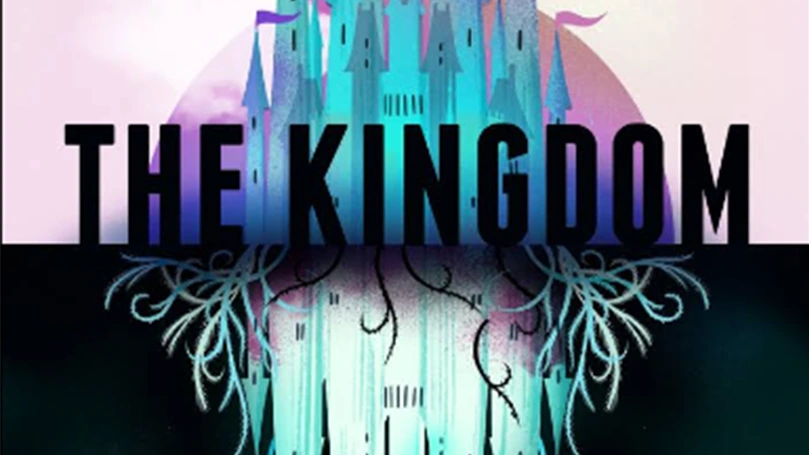
Although the title of this fairy tale from Jess Rothenberg might sound a bit bland, the story itself is anything but that. And it's an especially good choice if your kids like Star Wars more than Sleeping Beauty. This is because the story is sci-fi in nature, with half-androids taking centre stage. Said androids even perform fairy tales in this utopian future world – that is until someone a character gets discontinued and the blame falls on the heroine.
So, while this fairy tale is far from the usual story of a princess, magic beans or a cannibal witch, we still think it's an excellent choice. After all, there are still moral lessons to be had, the atmosphere is rightly fantastical, and the story itself is quite gripping.
12. The Ugly Duckling
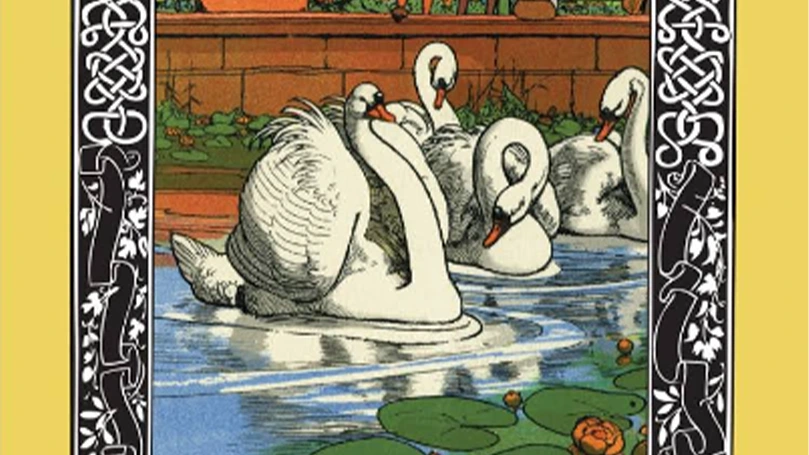
It's no secret that in the modern era, self-image issues are at an all-time high. With social media being omnipresent and the supposed difference between “the beauty” and “the beast” being more pronounced, a fairy tale like The Ugly Duckling is a must-read.
This is because it teaches the importance (and existence) of inner beauty, while also discouraging bullying those who are different from you. Plus, the story itself is simply wholesome and makes for a very pleasant read.
11. Prince Lindworm
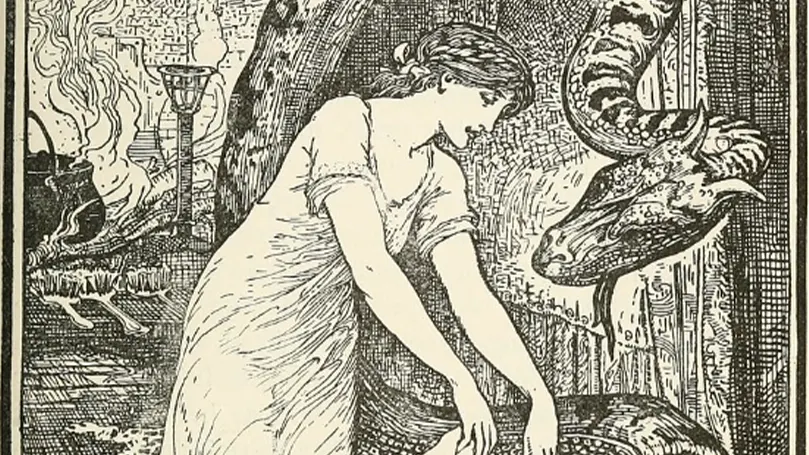
This story is actually a Norse tale, collected by Asbjornsen and Moe and translated by Sir George Webbe Dasent. And be aware that it tells quite a unique story.
At first glance, everything is up to code – a king can't have children, they perform a secret rite, they don't follow instructions and there are dire consequences. But those dire consequences come in the form of a lindworm (which is like a serpent) being the king's first son.
Said lindworm also stops his younger brother from getting married before they find a bride that's not opposed to human-eating invertebrates. And the conclusion of this bizarre fairy tale is something you just have to experience in order to understand.
10. The Three Little Pigs
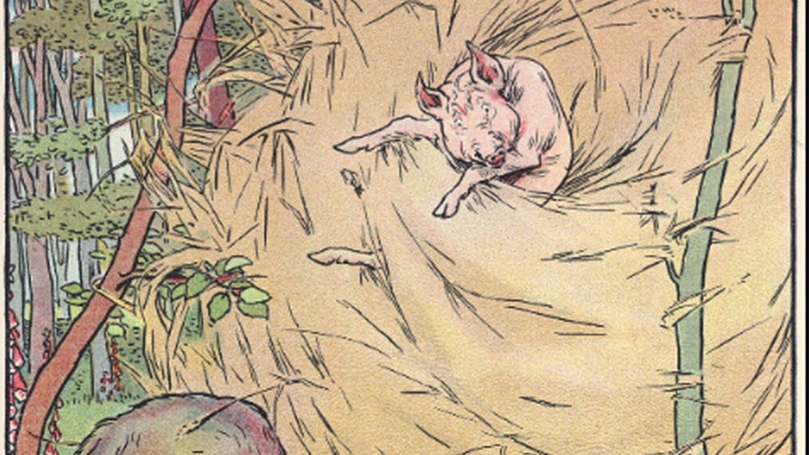
Just like The Little Red Riding Hood, this fairy tale gives you ample space to show off your acting talent. Doing the huff and the puff routine is something we're sure lots of parents treasure, and it's for good reason.
Plus, if you want to subtly nudge your child into becoming an architect, this is probably the way to go. And this story is also really good in a pinch, as it's very easy to remember and pull out whenever your kids need a few minutes of entertainment before going to sleep.
9. Cloud Tea Monkeys
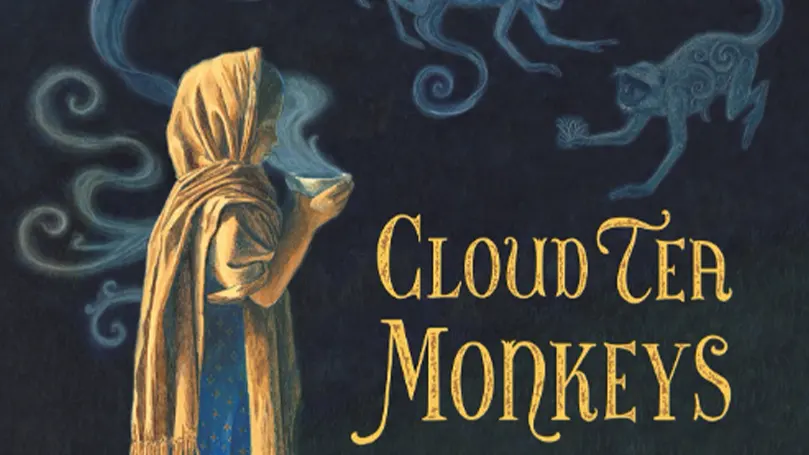
If you want to teach your children the horrors of both capitalism and private healthcare, this is the story for you! Jokes aside, this fairy tale from Mal Peet and Elspeth Graham tells the story of a little girl whose mother had gotten ill.
Not being able to afford a doctor, she tries to continue her mother's job of picking out tea leaves. However, this proves more difficult than the little girl had imagined. But just when all hope was lost, a few kind monkeys enter the scene.
Although this fairy tale has a noticeably large absence of fairies (and other mystical trademarks), we still think it makes for a good read. After all, it's rather wholesome by the end and can be easily followed up with a trip to the zoo if you really want to blow your kids away.
8. Goldilocks and the Three Bears
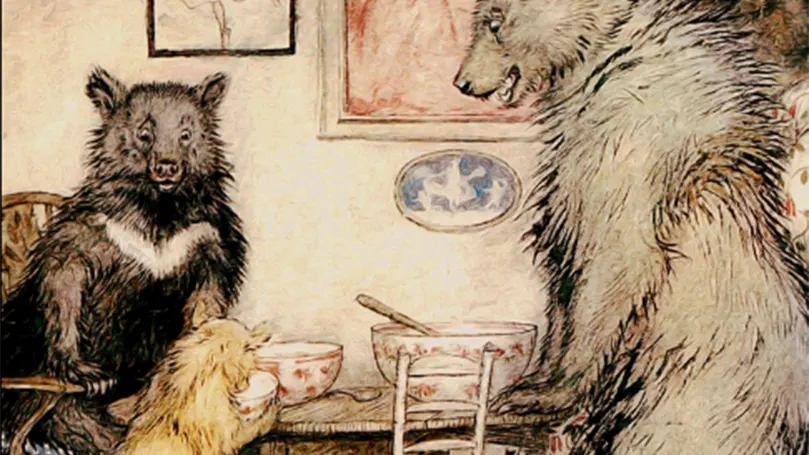
The thing that makes this fairy tale so good is that it can serve as a teachable moment for years. Whenever your child wants something that's too sweet or tries to run too fast, you can remind them that all the best things are in the middle.
This simple concept is so important even among adults that we often refer to the “Goldilocks zone” when talking about politics, recipes, or even new mattresses. Although that last one might only refer to us.
Nevertheless, we think that this iconic fairy tale is just as deserving of attention now as it was decades ago. Although you should also point out that entering someone's home uninvited (especially a bear's) isn't something they should replicate.
7. The Enchanted Maiden
This Portuguese fairy tale from Zofimo Consiglieri Pedroso has all the marks of other traditional stories. You have a king with three daughters all set to wed, two princes, and one peasant.
And as it usually goes, the daughter who ends up with the peasant is shunned by the rest of the family until supernatural intervention comes into play. So, nothing we haven't seen before. However, we still think that it's worth looking into.
For one, it discourages judging people by their social class. Secondly, the story itself has all the whimsy of other fairy tales that's sure to keep your children entertained and happy.
6. Pinocchio
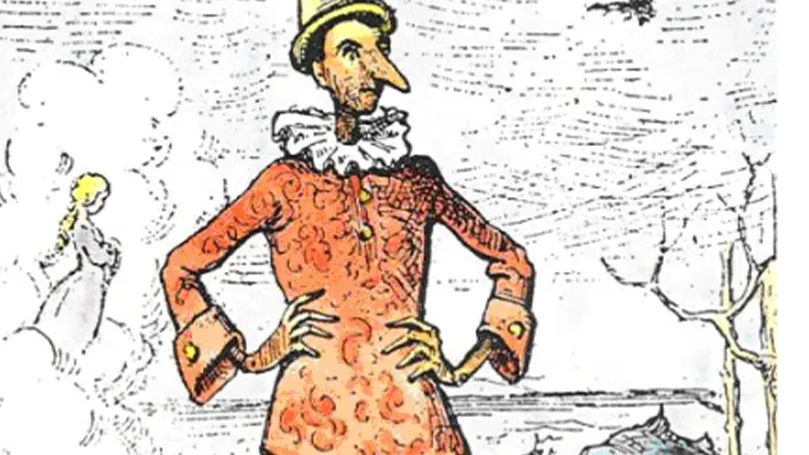
Although the Disney adaptation definitely gave a few kids the unparalleled fear of being turned into donkeys, the story itself is more than worth revisiting.
For one, it's one of the most direct examples of why you should be truthful in life – a lesson all kids should hopefully learn. And even aside from just the moral lesson, Pinocchio just makes for an excellent story that can keep most listeners engaged.
5. The Shadow
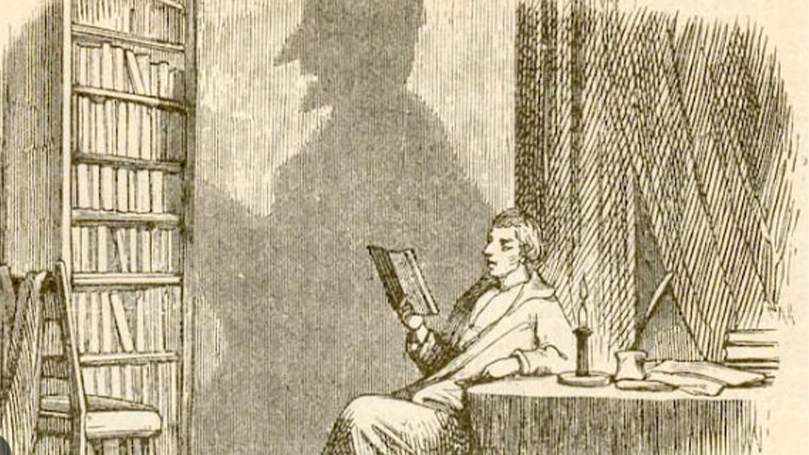
This fairy tale from Hans Christian Andersen is admittedly very dark and thus not quite appropriate for very young children. However, the story itself is rather fascinating and the moral, while somewhat bleak, can also be quite important.
It tells the tale of a man who one day loses his shadow only to meet it once again much later as a human. The former shadow is incredibly pessimistic about life, claiming that it has seen all the darkness humanity has to offer while the man remains optimistic and an idealist.
And, as it turns out, the Shadow gets rewarded in life quite heavily while the man suffers. Again, it's far from an uplifting story – but we could definitely see there being a dedicated audience for this type of fairy tale.
4. The Little Mermaid
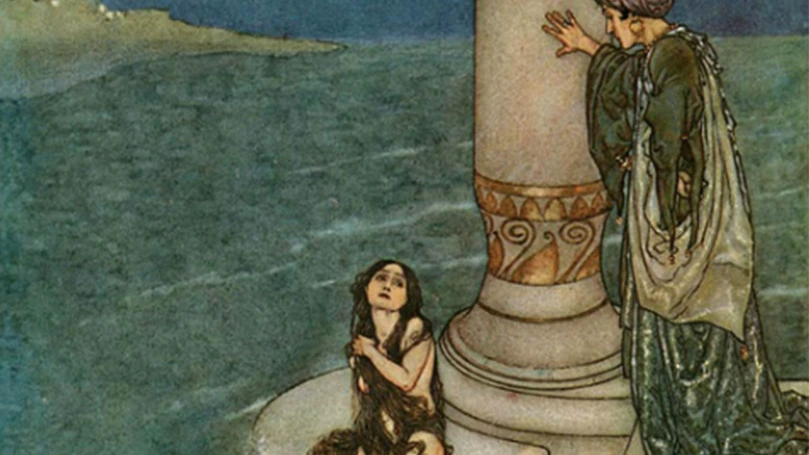
Mermaids are among the most popular fantastical creatures to date and that's all thanks to this fairy tale (and a lot of dehydrated sailors). Not to mention that the Disney adaptation is some of their best work!
We believe that most kids have a fascination when it comes to the sea and what can live under the surface and this story taps into that curiosity and makes it even stronger. Plus, the story teaches you valuable lessons like “the grass isn't always greener in someone else's lake” and “never sell your voice in order to be with someone”. Admittedly, that second lesson can be more important for the parents than the kids.
3. The Juniper Tree
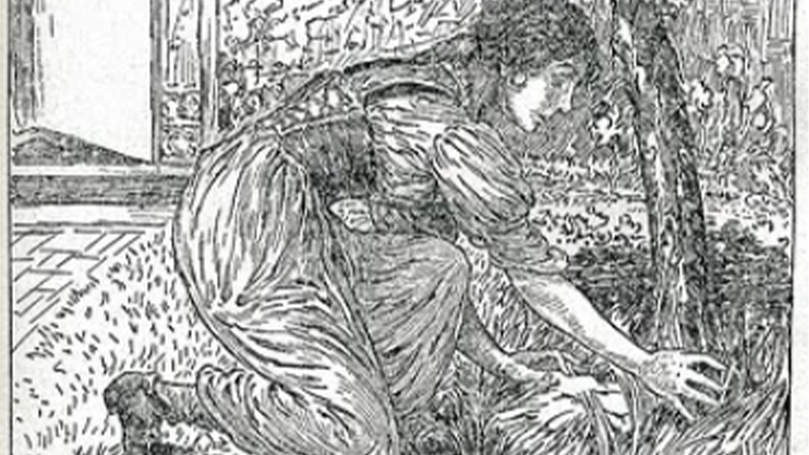
By now you've probably already picked out a fairy tale that'd be perfect for getting your kids to sleep. This story, however, isn't for the faint of heart. It's a Brother Grimm tale without the Disney PG-13 censor after all.
That being said, it still hits all the notes of a true fairy tale – with an evil stepmother, a talking bird, multiple men that are willing to give up valuable items to the protagonist, and murder. We're not going to go further into detail because this is the sort of story you need to experience with no spoilers.
2. Rumpelstiltskin
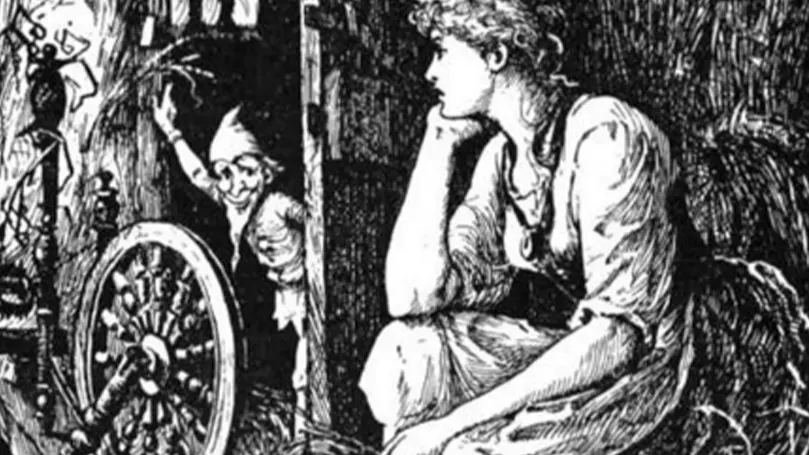
This is one of those stories that can easily be a horror film if you just alter the ending slightly. It centres on the titular little gnome who can spin straw into gold. However, this service comes at a price – namely, your firstborn child.
So, when a future queen realises that she might lose her first child, she is tasked with finding his true name in order to repay her debt. And just like with a few of the stories we've mentioned so far, you can get very creative when it comes to how you decide to tell the story (especially if you can do voices).
1. Bluebeard
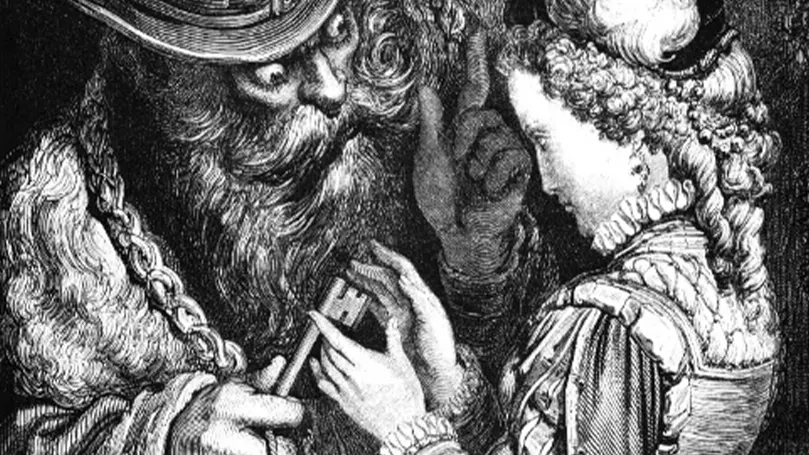
Lastly, let's talk about Bluebeard. Although the story itself has a happy ending (spoiler alert), you can make it into quite the cautionary tale. After all, the story features six dead wives and a key that can never be wiped from blood.
So, definitely not an ideal pick if your children are squeamish. That being said, it's still an incredibly interesting story that reads like a mix between a murder mystery and a traditional fairy tale. And if that sounds like a good combination to you, we highly encourage you to give it a look.
Popular fairy tales vs obscure/modern fairy tales
Hopefully, now you have a good selection of both traditional fairy tales as well as some lesser-known/modern stories to choose from. But we wanted to end things off with our two cents on which of these stories you should pick up.
And the answer is – all of them. We think that classic fairy tales can be quite important to understand certain sayings and cultural developments. However, we also don't think you should limit your bookshelf to only popular stories.
Plus, while reading classics might be nostalgic, reading new fairy tales might bring you as much enjoyment as your child. In fact, some of them should probably only be enjoyed by adults (like The Juniper Tree). But let us know what you prefer down in the comments! And which stories are on your top 20 fairy tales list?

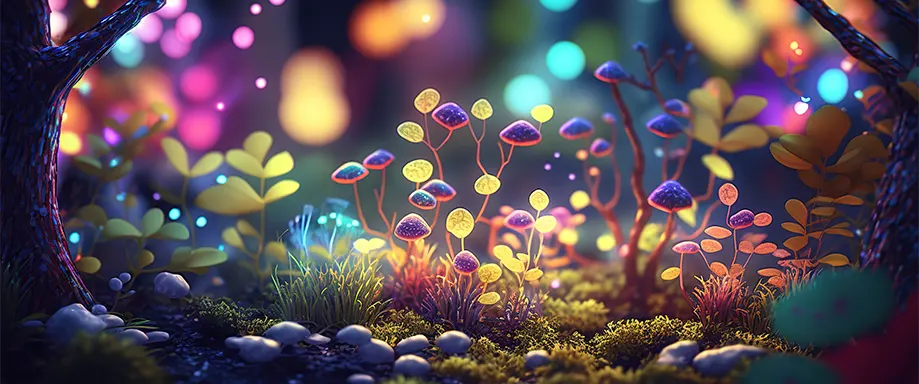













There are no comments yet
"*" indicates required fields